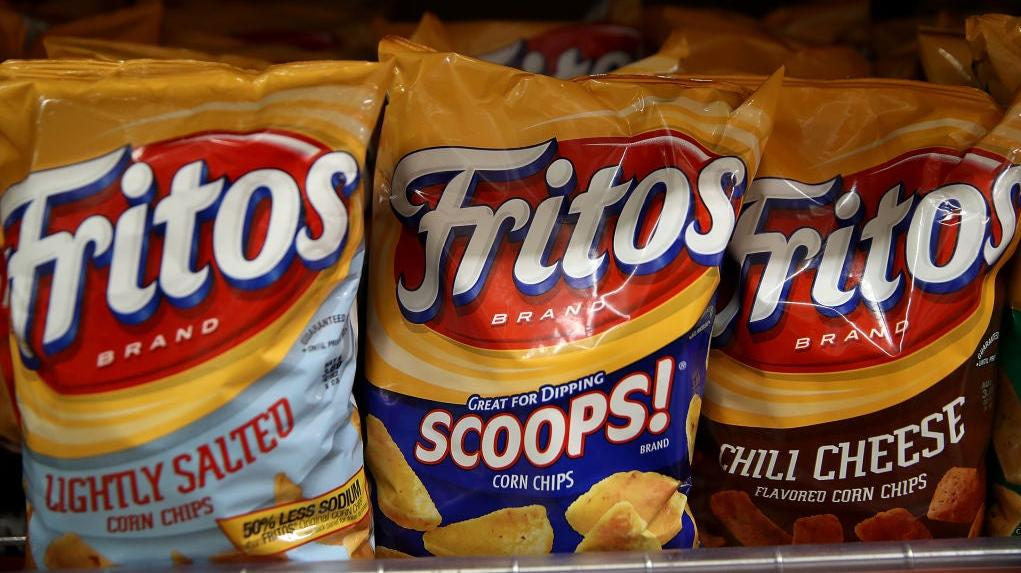After 20 Days, The Frito-Lay Strike Is Now Over [Updated]
A new union contract has been put into place, including the removal of what were known as "suicide shifts."
Update, July 26, 2021: The Frito-Lay strike is now over. The New York Times reports that a critical union vote passed and a two year contract has been put into place, thus ending the strike. This ends what employees at the Frito-Lay plant in Topeka, Kansas, have been calling "suicide shifts," which are two 12-hour shifts in a row with only an eight-hour rest period between them. The new contract gives workers a guaranteed day off a week, and removes suicide shifts altogether, and Frito-Lay's statement says that there will be a 4% wage increase in the next two years
It's not a perfect situation, however, as some weren't so happy with the contract. One warehouse worker, who spoke anonymously, said, there was "more disappointment than happiness" with the contract. "A lot of people had to vote yes because they were running out of money and didn't have insurance."
Update, July 16, 2021: As you might imagine, store shelves are now seeing the fallout from the Frito-Lay labor strike. FOX4 in Kansas City is reporting that a week into the strike, production of the popular snacks has slowed down to the point where some shelves are either understocked or empty.
Terry Fleer, a manager at Seabrook Apple Market a grocery store in Topeka, said he got a shipment that was only four boxes, and if that sounds small, that's because it is.
"It was not even half of what we normally get," Fleer said. The choices were also slim. "They're not bringing in as much as they used to. They say it's only going to be those core brands coming in." While the grocery store has more of a variety on order, it remains to be seen whether or not shipments will even show up. The strike is going to last at least a few more days, as union leaders won't meet with Frito-Lay management until July 19, KSNT News in Topeka reports.
Original Post, July 13, 2021: During the pandemic, Frito-Lay's production never slowed down. In fact, it only revved up, since many people didn't have much to do during the pandemic besides stay home and snack. During a normal year, there are bursts in production in advance of summer and the Super Bowl, but over the past year, it hasn't slowed down at all. Employees have had to work forced overtime with no pay increase. Now, Labor Notes reports, Frito-Lay employees in Topeka, Kansas, have been on strike for the past week.
Conditions are rough. Some employees have had to work 12-hour shifts for an entire week due to staff shortages, and the crushing 84 hours per week is entirely too much.
One employee, Monk Drapeaux-Stewart, reported that in the 12 years he's worked for the company, he's only received a 77-cent raise in hourly pay. Some employees have received extra money, but the employee contract specifies that those come in lump sum bonuses, not wage increases.
"Fifteen, 20 years ago Frito-Lay had a really good reputation—all you need is a high school diploma and you've got this job with good pay and benefits," Drapeaux-Stewart said. "But slowly all of that has been whittled away." While other local employers have offered wage increases, Frito-Lay isn't putting out similar offers. So in late June, union members affiliated with the Bakery Workers Local 218 voted to go a strike.
The plant has not shut down. Temporary workers have been bussed in from a nearby parking lot. "Most of these buses are completely empty, or have one to three people, not counting the driver," Drapeux-Stewart said. "It's psychological warfare—they're trying to demoralize and dispirit the men and women of the union in the hopes we'll come groveling back for whatever crumbs they offer us."
There have been supporters who have brought food and water to the picket line in solidarity.
"It's scary but it's exciting," Drapeaux-Stewart said. "I have so much hope for this strike that we will finally get what we've needed—the guarantee of getting to see our families, and earning a living wage to support those families."
